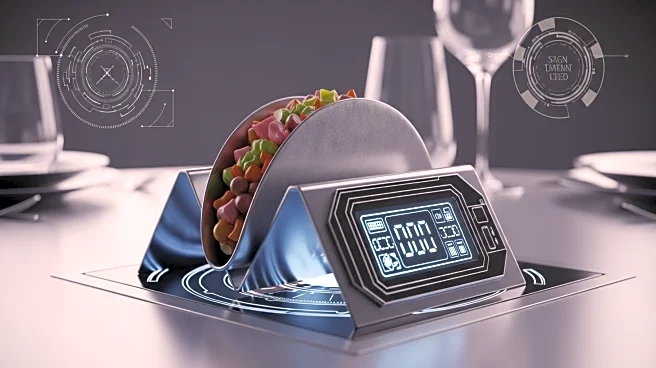What's Happening?
Taco Bell has announced the reintroduction of its 'Y2K' menu, featuring nostalgia-based items from the 1960s to the 1990s, such as Cool Ranch Doritos locos tacos and the 7-layer burrito. This move is part of a broader strategy to leverage nostalgia and limited-time offers to increase customer traffic and sales. The fast-food chain, owned by Yum Brands, is also incorporating user-generated custom orders and fan art into its marketing efforts to strengthen its connection with social media audiences. This initiative comes amid challenges with AI-driven drive-thru technology, which has faced technical issues. By focusing on creative and memorable menu offerings, Taco Bell aims to differentiate itself in a competitive market and attract a broader audience.
Why It's Important?
The reintroduction of novelty menus like Taco Bell's Y2K lineup is significant for the fast-food industry as it highlights the importance of innovation and brand differentiation in attracting customers. Limited-time offers can lead to increased customer traffic and higher spending, as they generate excitement and anticipation. For investors, these strategies can result in a 10% to 15% increase in profits through enhanced brand reputation and customer engagement. In a crowded marketplace, continual innovation is crucial for maintaining a competitive edge and fostering customer loyalty. By tapping into nostalgia and leveraging social media, Taco Bell aims to boost its brand visibility and sales, which could have positive implications for its financial performance.
What's Next?
Taco Bell's focus on novelty menus and user engagement is likely to continue as the company seeks to overcome challenges with its AI-driven technology and maintain its competitive position. The success of the Y2K menu could lead to further experimentation with limited-time offers and themed events, potentially influencing other fast-food chains to adopt similar strategies. As consumer preferences evolve, Taco Bell and its competitors will need to stay agile and responsive to emerging trends to meet customer demands and capitalize on new opportunities. The impact of these initiatives on sales and brand loyalty will be closely monitored by industry analysts and investors.
Beyond the Headlines
The emphasis on nostalgia and novelty in fast-food menus reflects broader cultural trends where consumers seek unique and memorable experiences. This approach not only drives sales but also enhances brand identity and customer loyalty. However, it also raises questions about the sustainability of such strategies in the long term, as consumer tastes continue to evolve. Additionally, the integration of user-generated content and social media engagement highlights the growing importance of digital platforms in shaping brand-consumer relationships. As technology continues to advance, fast-food chains may increasingly rely on data-driven insights to refine their offerings and marketing strategies.








